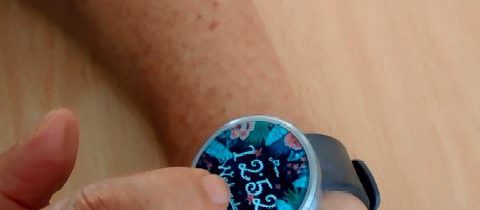Case Study
ICTs are increasingly prevalent across the life course. The uptake of ICTs, however, varies considerably across countries (see Blanche, 2015 for a summary of 10 countries). Informed by Sawchuk and Crow’s (2012) study of older women’s use of mobile phones, we approach our study of grandmothers’ use of ICTs from a critical and relational perspective. Previous research conducted by our research team explores ICTs concerning family communication (Ivan & Hebblethwaite, 2015), leisure (Nimrod, 2011), and telecommunications policy (Barrantes, 2008) and positions us well to undertake the current study.
Building upon the pilot study of 2014-15 (Ivan [Principal Investigator], Hebblethwaite), this continuation project expands our ‘Grannies on the Net’ case study that explored how grandmothers used Facebook to communicate with their grandchildren living abroad or far from home.
As such, the purpose of the project proposed is to cross-culturally interrogate the relationship between ICTs and the social participation of grandmothers (60+) in Canada, Romania, Peru, Israel, Spain, and Colombia. This research will contribute to the current literature on how older adults use (or don’t use) ICTs in their everyday lives by focusing on a range of media, including mobile devices (mobile phones, tablets, laptops), social media (Facebook, Twitter, Instagram), online communities, blogs, and other communication platforms such as Skype, FaceTime, and email. We will ask them what technologies they use, what for, and how did they learn to use it, among other questions. The project will extend beyond family communication and focus on social participation more broadly, including leisure engagement. As ICTs are often used to a wide variety issues (e.g., coordinating social groups, seeking and sharing information with other older people, consuming and creating media contents).
The six countries report differing rates of internet usage among older people, as per Blanche’s analysis. Thus, we expect to find interesting cultural differences in norms and practices related to family relations and grandparenting. Our study could make an interesting contribution to the literature with a cross-cultural sample.
Methodology
Using a focus group methodology, researchers (together with graduate students and postdoctoral fellows) will engage grandmothers (age 65 and older who have used the Internet) in conversations about their everyday uses of ICTs. Topics to be explored will include: what media they engage with; what media they don’t engage with; how they engage with these media (how often, with whom, in what ways, and how they learned); their reasons for engagement and non-engagement; and their overall perceptions of the relationship between ICTs and social participation in their everyday lives.
Three to four focus groups, with six to eight participants, will be conducted in each of the following cities: Bucharest, Peru, Israel, Barcelona, and Cali. In order to obtain greater geographical representation in Canada, ten focus groups (two focus groups in each of the five provinces) will be conducted in different provinces (Quebec, Ontario, Newfoundland, Manitoba, and British Columbia). These provinces were chosen to represent different regions in Canada.
These group conversations will be video recorded (with participant consent) and used in the dissemination and knowledge mobilization activities that will result from the project (e.g., peer-reviewed presentations and publications, on the ACT website, and potentially other public venues). While this is one of the intended outcomes of the project, this will depend on the grandmothers’ wishes. As such, we have not budgeted for this video preparation in the current project and will pursue this through ‘publication funding’ in the next round of funding, should there be a need for it.
Ethical procedures
Ethical procedures have been approved by the hosting university and the Tri-Council Policy Statement: Ethical Conduct for Research Involving Humans.
Acknowledgments
This study is partially funded by the Ageing + Communication + Technology project (ref. 895-2013-1018, Social Sciences and Humanities Research Council of Canada [SSHRC]).
References
Barrantes, R. (2008). Can the poor afford mobile telephony? Evidence from Latin America. Telecommunications Policy, 32(8), 521-530.
Blanche, D. (2015). Statistical Summary on Ageing and ICTs. Working paper prepared for ACT.
Ivan, L., & Hebblethwaite, S. (2015). The use of social media in family communication among grandmothers and grandchildren. Paper presented at the Qualitative Research in Communication Conference, Bucharest, Romania.
Nimrod, G. (2011). The fun culture in seniors’ online communities. The Gerontologist, 51(2), 226-237.
Sawchuk, K. & Crow, B. (2012). I’m G-Mom on the Phone: Remote Grandmothering, Cell Phones and Inter/generational Dis/connections. Feminist Media Studies, 12(4), 475-489.

